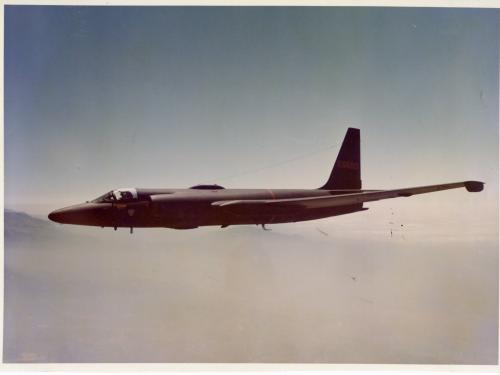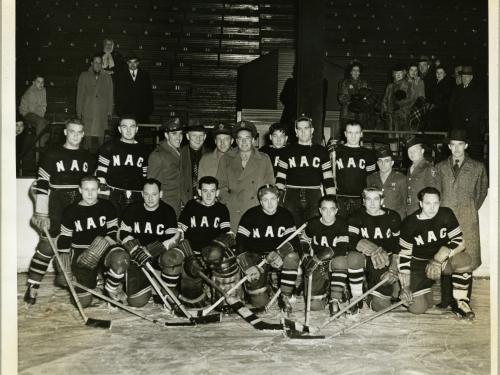
Stories of daring, stories of technological feats, stories of prevailing against the odds ... these are the stories we tell at the National Air and Space Museum. Dive in to the stories below to discover, learn, and be inspired.
Showing 1261 - 1270 of 1761

October 27, 2015
I recently attended a screening of Bridge of Spies, a new movie directed by Steven Spielberg and starring Tom Hanks. Purportedly, Bridge of Spies was inspired by events surrounding the 1962 exchange of U-2 pilot Francis Gary Powers and graduate student Frederick Pryor for Soviet spy Rudolph Abel. The movie event was sponsored by Virginia’s Cold War Museum which was co-founded by Francis Gary Powers, Jr., who was also in attendance and served on a Q&A panel after the film.

October 22, 2015
The Museum’s annual Air & Scare event is taking place this Saturday at the Udvar-Hazy Center in Chantilly, Virginia. In the spirit of disguises, costumes, and just plain scary stuff, I thought I would share some examples from the history of military aviation where things were not as they seemed.

October 17, 2015
Many people, if not most, have never heard of Octave Chanute or know what an anemometer is, but the man and the instrument both played an important part in Orville and Wilbur Wright’s aeronautical experiments. First, some background on Chanute. Octave Chanute was a Paris-born civil engineer in the United States who played a significant role in the burgeoning field of heavier-than-air flight in the late nineteenth century.

October 14, 2015
As the Apollo program took form in the early 1960s, NASA engineers always kept the safety of their astronauts at the fore in light of the enormous risks they knew were inherent in the goal of landing on the Moon and returning safely.
October 10, 2015
Only a few short months after I began my job as coordinator of the Explainers Program at the Steven F. Udvar-Hazy Center, the opportunity to help create a new program was on my desk.

October 08, 2015
This summer, I took myself out to the ball game, spending hours at Camden Yards and Nationals Park, with quick side trips to Fenway Park and U.S. Cellular Field (part of me will always believe the White Sox still play at Comiskey).

September 30, 2015
The recent announcement by NASA that there is evidence of salty, liquid water seeping out of the ground on Mars is both exciting and scientifically puzzling at the same time. As a member of the science team for the High Resolution Imaging Science Experiment (HiRISE) camera on board the Mars Reconnaissance Orbiter (MRO), I’ve been hearing about these possible seeps, or Recurring Slope Lineae (RSL), for several years now.

September 29, 2015
American Archives Month kicks off in September with Ask An Archivist Day on Twitter. In preparation, our archivists answered some serious (and not so serious) questions. Discover how they became archivists, how they work with our staff, and what songs would be on the National Air and Space Museum Archives soundtrack if one existed.

September 25, 2015
You may have heard about the “supermoon eclipse” that will happen this Sunday, September 27. Sounds pretty exciting! But what does it mean? Let’s start with the “supermoon” part. The Moon’s orbit around the Earth is not a perfect circle; it’s an ellipse, which means that the distance between the Moon and the Earth changes over the course of a month. When the Moon is in the part of its orbit that brings it closest to Earth, the perigee, it appears larger in our sky.

September 23, 2015
You can’t read anything about French World War I pilot Charles Nungesser that doesn’t include descriptors such as flamboyant, audacious, undisciplined, rakish, and insubordinate.